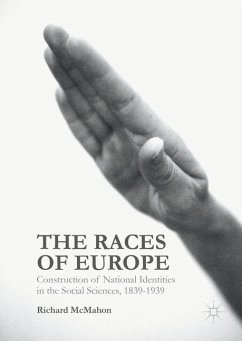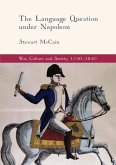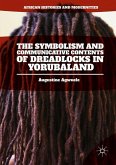This book explores a vital
but neglected chapter in the histories of nationalism, racism and science. It
is the first comprehensive study of the transnational scientific community that
in the nineteenth and early twentieth centuries attempted to classify Europe's
biological races. Anthropological race classifiers produced parallel
geographies, histories and hierarchies of European peoples that were crucial to
the creation of national identities and to the overtly political race
discourses of eugenics and popular racist ideologues. They lent nationalism the
invaluable prestige of natural science, and traced the histories, conflicts and
relationships of 'national races' back into prehistory. Racial national
character stereotypes meanwhile supported competing political ideologies. The
book examines the interplay between class, gender and national identity
narratives and the tensions and interactions between the scientific and
political agendas of classifiers. Within the elaborate transnational networks
of scientific communities, for example, they had to reconcile competing
national narratives.
This book explores a vital but neglected chapter in the histories of nationalism, racism and science. It is the first comprehensive study of the transnational scientific community that in the nineteenth and early twentieth centuries attempted to classify Europe's biological races. Anthropological race classifiers produced parallel geographies, histories and hierarchies of European peoples that were crucial to the creation of national identities and to the overtly political race discourses of eugenics and popular racist ideologues. They lent nationalism the invaluable prestige of natural science, and traced the histories, conflicts and relationships of 'national races' back into prehistory. Racial national character stereotypes meanwhile supported competing political ideologies. The book examines the interplay between class, gender and national identity narratives and the tensions and interactions between the scientific and political agendas of classifiers. Within the elaborate transnational networks of scientific communities, for example, they had to reconcile competing national narratives.
but neglected chapter in the histories of nationalism, racism and science. It
is the first comprehensive study of the transnational scientific community that
in the nineteenth and early twentieth centuries attempted to classify Europe's
biological races. Anthropological race classifiers produced parallel
geographies, histories and hierarchies of European peoples that were crucial to
the creation of national identities and to the overtly political race
discourses of eugenics and popular racist ideologues. They lent nationalism the
invaluable prestige of natural science, and traced the histories, conflicts and
relationships of 'national races' back into prehistory. Racial national
character stereotypes meanwhile supported competing political ideologies. The
book examines the interplay between class, gender and national identity
narratives and the tensions and interactions between the scientific and
political agendas of classifiers. Within the elaborate transnational networks
of scientific communities, for example, they had to reconcile competing
national narratives.
This book explores a vital but neglected chapter in the histories of nationalism, racism and science. It is the first comprehensive study of the transnational scientific community that in the nineteenth and early twentieth centuries attempted to classify Europe's biological races. Anthropological race classifiers produced parallel geographies, histories and hierarchies of European peoples that were crucial to the creation of national identities and to the overtly political race discourses of eugenics and popular racist ideologues. They lent nationalism the invaluable prestige of natural science, and traced the histories, conflicts and relationships of 'national races' back into prehistory. Racial national character stereotypes meanwhile supported competing political ideologies. The book examines the interplay between class, gender and national identity narratives and the tensions and interactions between the scientific and political agendas of classifiers. Within the elaborate transnational networks of scientific communities, for example, they had to reconcile competing national narratives.








